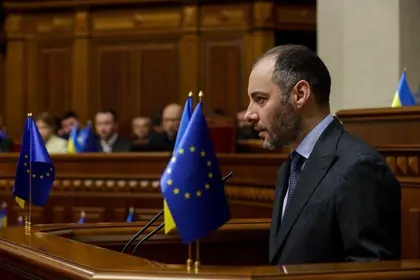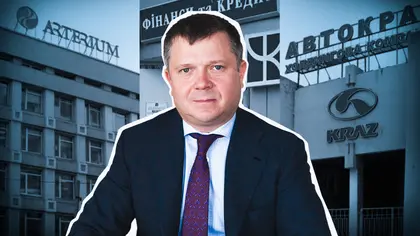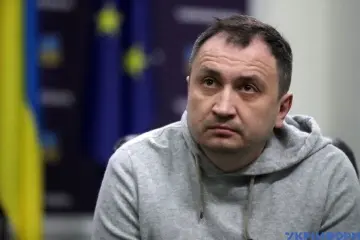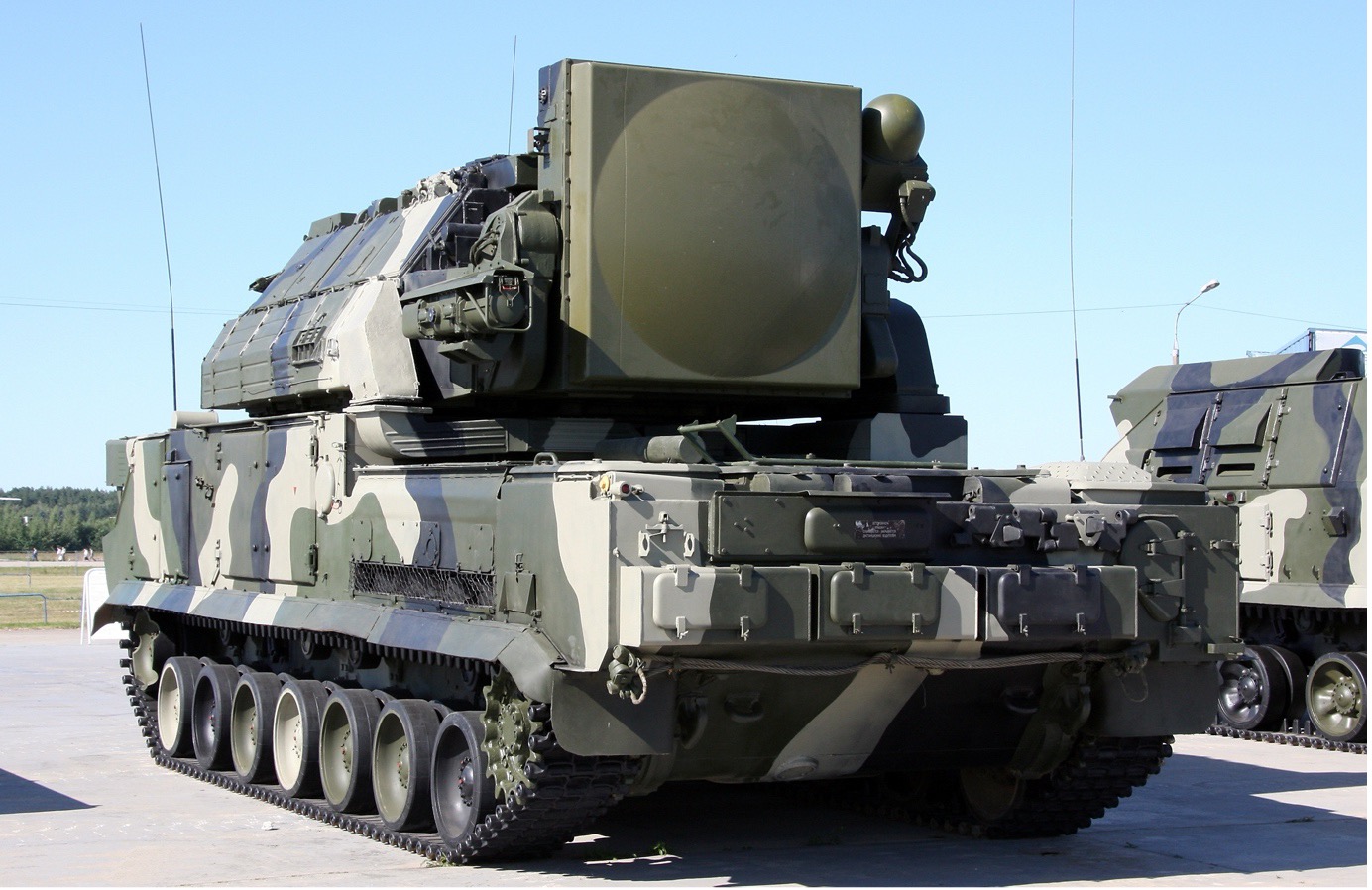On Monday, Jan. 30, the Kyiv Economic Court began a hearing on the fraud case connected to Ukrainian oligarch Kostyantyn Zhevago, allegedly involved in the loss of Hr.46 billion ($1.25 billion) of depositors’ money.
Zhevago is Ukraine’s fifth wealthiest man, according to Forbes rankings. As of December 2022 his net worth was $1.4 billion, down from $2.1 billion less than a year earlier
JOIN US ON TELEGRAM
Follow our coverage of the war on the @Kyivpost_official.
 Photo:https://ampbiz.censor.net/
Photo:https://ampbiz.censor.net/
A Kyiv Post investigation has revealed the biggest alleged embezzlement scheme in decades, the corruption of state regulators, and trade with Russia during times of war, which Zhevago, a mining magnate and a former member of the Ukrainian parliament, has repeatedly denied.
Vacuuming money
In January 2015, nine months before the collapse of Finance and Credit, Kostyantyn Zhevago’s flagship financial asset, a Ukrainian soldier nicknamed Santik (Kyiv Post uses a pseudonym for security reasons) was trying to recover the body of an electrician killed by a booby trap in the frontline village of Maryinka, a few kilometers from Russian-occupied Donetsk. A mine blast has turned it into an unrecognizable piece of flesh.
Booby traps were frequently designed to kill civilians trying to fix the power lines. “It’s an anti-electrician mine,” Santik said, examining the site of the explosion.
This Ukrainian soldier was born and raised in Donetsk, lost his business to the occupation forces, and started his new life and career from scratch. The bank he entrusted his money to was Finance and Credit.

Mystery Surrounds Firing of Deputy Reconstruction Minister
The bank was about to collapse, and most of the money that belonged to thousands of its depositors, including Santik, would vanish in a massive scam, of which the National Bank of Ukraine (NBU) – the banking system’s regulatory authority – was aware.
Money belonging to Santik were frozen by the bank and later converted from hard currency to hryvnias without his consent.
The same month, January 2015, the NBU board classified Finance and Credit as problematic. Several restrictions were established, including the requirement to stop active transactions with insiders and persons related to the bank. Despite this, the bank resumed its illicit activities.
From February 2015 to October 2015, Finance and Credit provided loans to the companies affiliated with Zhevago. Among the other enterprises involved in this business were a few companies supplying Russia and its proxies, Belarus, with tires, fuel and other goods needed for military operations.
The bank collapsed a year and a half after the first wave of the Russian invasion in 2014.

Head-office of Finance and Credit bank, photo from the open sources
Now Santik, as well as thousands of other depositors of this financial institution, are seeking their money back.
“Zhevago’s business is a vacuum cleaner. He sucked money out of the depositors to credit his own enterprises. When the bank was dead, he discovered a new scam and started ‘vacuum-cleaning’ the co-owners of his other big business, Ferrexpo,” according to Maxim Garus, who represents one of the groups of depositors who had lost their money in the Finance and Credit case.
Out of paper
“We’ve never seen such a complicated case,” a representative of the Ukrainian deposit guarantee fund said before the judge at a court hearing on Monday.
“The court does not have the resources to print all this evidence you have submitted,” the judge remarked. “It’s 7,000 pages. Can you print it for us?”
The representative responded: “It would cost half a million hryvnas. Would it be OK if we only print the essentials?”
Kostyantyn Zhevago, the protagonist in this drama, could not be present in the court room. He was arrested in the French ski resort of Courchevel in December, on the basis of an international warrant issued by Ukraine. Zhevago’s extradition to Ukraine will be decided at a Feb. 2 court hearing in France.
“He seeks asylum status in Europe,” a lawyer for Zhevago, Natalya Pushina, stated. “He is worried about his safety.”
Among the depositors who lost their money in Zhevago’s bank is Igor Maksymovych, an entrepreneur who did business with Zhevago and his companies. “He swore to God he would return my cash. Half a year later, his bank was dead,” Maksymovych said.
Personal relationships based on promises and loans to the affiliated companies were part and parcel of the Finance and Credit business model.
The alleged embezzlement scheme that resulted in the bankruptcy of Zhevago’s bank is one of the biggest in Ukrainian history.
The Kyiv Post investigation found that the authorities had not regularly inspected the bank since the early 2000s.
At the brink of its collapse, according to documents from the Higher Administrative Court of Ukraine, the bank was not following basic procedures, including monitoring operations involving money laundering and the financing of terrorism.
Trade with Russia
“Our companies have not done business with the Russian Federation for more than 10 years,” Zhevago said on Feb. 24, 2022. “The leading companies and I are on Russia’s sanctions list.”
Indeed, since November 2018, the businessman has been under Russian sanctions alongside two companies he owns – AvtoKrAZ and Ferrexpo, which includes the Poltava, Belaniv and Yeristiv ore-dressing and processing enterprises.
And yet, the Kyiv Post investigation has discovered dozens of transactions between companies in Zhevago’s business group and the Russian Federation.
According to data obtained from the State Customs Service, the last time AvtoKrAZ cooperated with its Russian partners dates back to May 18, 2018.
The Zhevago company exported trucks for the cost of Hr.15 million ($410,000).
In November 2022, AvtoKrAZ was nationalized.
Meanwhile, the Poltava ore-dressing and processing enterprise, owned by Zhevago, continued to import Russian goods. One of the last operations occurred on Feb. 14, 2022 – just 10 days before Russia’s full-scale invasion. The plant purchased steel products from Russia’s RTS-Polymer Engineering.
Since 2017, the Poltava ore-dressing and processing enterprise has cooperated with 12 companies from the Russian Federation.
Interestingly, this enterprise is a subject of a dispute between Ferrexpo and VS Energy (a company connected to Russian entrepreneurs and politicians Oleksandr Babakov and Yevhen Giner).
Both are on the Ukrainian sanctions list and are beneficiaries in a few troubled Ukrainian businesses connected to organized crime groups, previously reported by Kyiv Post.
Another factory owned by Zhevago, the Rosava tire producer, also cooperated with the Russians. In 2017 two Russian companies, Torgliga and Rostselmash Combine Plant purchased goods from the Ukrainian company.
 Tires from “Rosava” plant
Tires from “Rosava” plant
Zhevago’s businesses worked most actively with the Russians in pharmaceuticals. The Kyivmedpreparat company has been supplying medicines and other goods since 2018. Halychpharm sold medicines to Russia and Belarus, with the last official shipment in January 2022. And Zhevago’s Arterium corporation was making financial transactions with Russia and Belarus from 2017 to 2020.
On Dec. 8 2022, Arterium reported that as of Feb. 24, they “completely left the Russian Federation and Belarus market, terminated all relations with Russian and Belarusian counterparties, and do not carry out any activities on the territory of these countries – either directly or indirectly.”
According to the company statement, the goods that can still be sold in these countries are “remnants sold before the war.”
According to Kyiv Post estimates, the volume of export-import operations of Zhevago companies with the Russian Federation from 2017 to 2022 exceeded Hr.7.5 billion ($200 million).
Kyiv Post has contacted Zhevago’s press office with a request to provide details of the trading activities of businesses affiliated with Zhevago. At the time of this publication, they have neither replied nor made any public statements.
At the same time Zhevago’s wife and daughter were posing at a fashion event in Paris, Santik the client of his collapsed bank nicknamed was recovering a drone purchased by the volunteers and lost on the frontline.
 Zhevago family in Paris this January, “Ukrainska Pravda”
Zhevago family in Paris this January, “Ukrainska Pravda”
“The drone costs Hr.1,5 million ($41,000), I simply could not lose it. So I planned this operation like a chess player plans a game in the tournament. And I found it, after walking 50 kilometers in the ‘grey zone.’ I’m not Zhevago kind of a guy. I do not lose something that’s entrusted to me.”
 Soldier “Santik”, one of the depositors of the collapsed Finance and Credit bank
Soldier “Santik”, one of the depositors of the collapsed Finance and Credit bank
You can also highlight the text and press Ctrl + Enter






